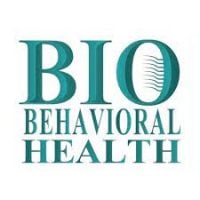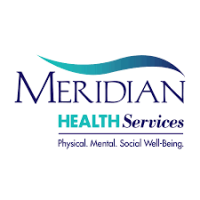Catholic Social Services of Oakland County
Drug Rehab Center in Pontiac, Michigan
Catholic Social Services of Oakland County in Pontiac, MI is a multi-purpose addiction treatment facility that offers a wide range of services for substance abuse, mental health issues, and dual diagnosis, providing compassionate care and support through therapy, medical services, and aftercare to help individuals manage addiction and regain sobriety while also addressing community needs.
Multiple patients have reported Catholic Social Services of Oakland County as permanently closed.
Research other rehabs in Pontiac, Michigan, or get help finding an open facility.
About Catholic Social Services of Oakland County in Michigan
Catholic Social Services of Oakland County, nestled in Pontiac, Michigan, is a private rehab center focusing on alcoholism, drug addiction, along with dual diagnosis, mental health, and substance abuse treatments. Its foundation on Catholic faith principles brings a unique approach to treating individuals of all beliefs, embodying compassion and comprehensive care.
Accredited by CARF and licensed by the state of Michigan, this facility stands out for its varied services tailored to those battling addiction and related mental health issues. Its longstanding history since 1945 emphasizes a legacy of empathy and professional guidance.
- Holistic Treatment Approach: Integrates spiritual care with medical and therapeutic services to address addiction.
- Dual-Diagnosis Capability: Expertise in treating individuals with concurrent substance abuse and mental health disorders.
- CARF Accreditation and State License: Ensures adherence to high standards of care and professional practice.
Catholic Social Services of Oakland County offers a wide spectrum of care for those struggling with opioid addiction, alcoholism, drug abuse, and related mental health conditions. Their methods include therapeutic care, medical treatment, and aftercare support, aiming to facilitate a full spectrum of recovery.
Genders
Ages
Modality
Additional
Accreditations
State License

CARF
The Commission on Accreditation of Rehabilitation Facilities (CARF) is a non-profit organization that specifically accredits rehab organizations. Founded in 1966, CARF's, mission is to help service providers like rehab facilities maintain high standards of care.
Conditions and Issues Treated
Opioid addiction is when someone becomes addicted to opioids. This can happen quickly due to any opioid use. Opioid withdrawal can be uncomfortable and lead the user to continue using even if they want to quit. It’s best to receive inpatient treatment for detoxification.
Even if a person doesn’t need inpatient treatment, it’s recommended to start rehabilitation or at least some kind of outpatient treatment. This is because the withdrawal symptoms from opioids can be uncomfortable and unpleasant, to the point that a person could end up using again or worse.
Detoxification should be done to break the physical addiction of opioids. This can be done with opioid replacement therapy, medication-assisted therapy, or a more traditional detoxification program. Intensive outpatient treatment is a form of addiction care that allows patients to continue living at home while undergoing treatment. This type of care is appropriate for patients who have been treated in residential treatment programs. Intensive outpatient programs include regular visits to the facility providing therapy, and patients gradually return to their routine life. IOP benefits most when patients have a supportive family member or friend to help them recover.
The first step to getting into an intensive outpatient program is to attend a detoxification facility. Detoxification facilities are designed to remove substances from the body safely. The patient will attend sessions designed to help them understand their addiction and its impact on their lives. While in an intensive outpatient program, therapy sessions are scheduled three to five times per week, with the patient attending no more than two sessions in one day.
Dual Diagnosis therapy is considered more successful than traditional rehab methods because it treats the addiction and the underlying mental health disorder simultaneously. This comprehensive approach gives Pontiac, MI patients the best chance for long-term recovery. If the patient does not receive treatment for both conditions, they are more likely to relapse.
Levels of Care Offered
This center offers a variety of custom treatment tailored to individual recovery. Currently available are Aftercare Support, Drug Rehab, Dual-Diagnosis, Outpatient, with additional therapies available as listed below.
Outpatient treatment consists of counseling and therapy sessions. The outpatient treatment process begins with the addict’s initial detox period, lasting about ten days. Outpatient treatment is used for those who are at moderate risk for “slipping back” into the addiction. It is also used for those who are not currently experiencing any side effects from withdrawal, can handle social pressure, have a stable living environment, and have a good support system.
Aftercare support is often overlooked in the treatment of drug and alcohol addiction. However, it’s an essential part and should be considered when planning a course of rehab.
Aftercare is a term that’s used to refer to any sort of continuing care offered for a drug addict who has voluntarily entered a rehabilitation program. This type of care can be provided in several settings, including outpatient therapy sessions after the addict has completed an inpatient program. There are also 12-step support groups, such as Alcoholics Anonymous, which can provide additional help for addicts trying to stay sober.
Aftercare is vital because addicts often face many challenges as they attempt to recover from drug addiction or alcoholism. Because of the powerful nature of these addictions, those who struggle with a drug or alcohol problem will likely have to face the craving for their substance of choice for the rest of their lives. Recovering can be a lonely and frustrating endeavor, especially without the support of others who are going through similar situations.
Therapies & Programs
Individual Therapy is a crucial component of addiction recovery. Therapists work with patients to identify the root of their addiction and figure out how to better handle the issues that led to them using drugs. Individual Therapy is one on one sessions where people meet with their therapist. Individual therapy provides a safe space for people to open up and discuss personal and sensitive topics which they may not feel comfortable discussing in a group setting.
In this type of therapy, therapists can develop specific solutions for each patient, which helps speed up their recovery process. In addiction recovery, therapy is a crucial part. It allows patients to go deep into their core issues and discover how those problems can be better handled now. Therapy can be performed in individual sessions as well as group settings. In individual therapy for addiction, the patient meets with the therapist one-on-one to focus on the underlying issues of addiction and come up with solutions to prevent future abuse.
Addiction can take a heavy toll on relationships, damage the trust and intimacy that was once there. Couples therapy at Catholic Social Services of Oakland County helps to rebuild the trust and intimacy that has been damaged. An intimate relationship with a drug addict is not healthy for children or anyone in the family. Therapist help to rebalance family roles and create a healthier environment after rehab in Pontiac, MI.
Family therapy is a crucial part of drug treatment and getting sober. It is one of the most effective ways to help addicts stay on the path to long-term sobriety. One of the most important parts of family therapy is the relapse prevention plan. During treatment, therapists and doctors will often sit down with the addict and their family to develop a plan if the addict ever feels like they want to use again. This plan should involve steps the addict and family can take together to prevent them from relapsing in the future.
An addict’s family can play a vital part in helping them to avoid relapse because they can spot the warning signs and help them get back on track before it becomes too much of a problem. Family therapy is one of the most effective ways to help addicts stay on the path to long-term sobriety.
Group Therapy is employed by drug treatment centers like Catholic Social Services of Oakland County to provide the recovering addict with a platform to talk about their feelings and experiences. It also provides for an opportunity to learn from other addicts who have successfully overcome their addiction. It is recommended that all group members be recovering addicts for this type of therapy to work.
Life Skills Services provide services aimed at helping people enter into and maintain long-term sobriety. The services are offered at varying levels of intensity, specific to the needs and requirements of each patient. Some benefits of these services are restoring hope and empowerment, enhancing family involvement, increasing patient compliance, and reducing relapse rates.
Training someone on improved life skills allows someone recovering from an addiction to feel more capable of taking care of him or herself. The skills taught in Catholic Social Services of Oakland County are daily skills that give a better recovery foundation by simply giving the person tools they need to survive.
Catholic Charities of Southeast Michigan Associated Centers
Discover treatment facilities under the same provider.
- Catholic Charities of Southeast Michigan - Lapeer in Lapeer, MI
- Catholic Charities of Southeast Michigan - Lake Orion in Lake Orion, MI
- Catholic Charities of Southeast Michigan - Clinton Township in Clinton Township, MI
- Catholic Charities of Southeast Michigan - Port Huron in Port Huron, MI
- Catholic Charities of Southeast Michigan - Royal Oak in Royal Oak, MI
Learn More About Catholic Charities of Southeast Michigan Centers
Additional Details
Specifics, location, and helpful extra information.
Pontiac, Michigan 48341 Phone Number(248) 334-3595 Meta DetailsUpdated April 15, 2024
Staff Verified
Catholic Social Services of Oakland County Patient Reviews
There are no reviews yet. Be the first one to write one.
Pontiac, Michigan Addiction Information
Michigan has the second-highest rate of drug and alcohol abuse in the nation. Heroin is linked to more than 50% of the state's hepatitis C cases. Marijuana is the drug most often associated with crimes in Michigan, followed by methamphetamines. Opioids alone are responsible for almost 20% of all drug overdose deaths in Michigan.
Pontiac, Michigan is facing a drug addiction problem that is quickly worsening. In 2017, there were a total of 1,023 drug-related hospitalizations in the city. Over 60% of inmates in local jails are addicted to drugs or alcohol. There are a number of different forms of therapy accessible in Pontiac, MI. Inpatient treatment, outpatient treatment, and 12-step programs are some of the most popular kinds of treatment.
Treatment in Nearby Cities
- Plymouth, MI (20.2 mi.)
- Hancock, MI (404.1 mi.)
- Portland, MI (83.2 mi.)
- Dowagiac, MI (150.4 mi.)
- Roscommon, MI (144.2 mi.)
Centers near Catholic Social Services of Oakland County
The facility name, logo and brand are the property and registered trademarks of Catholic Social Services of Oakland County, and are being used for identification and informational purposes only. Use of these names, logos and brands shall not imply endorsement. RehabNow.org is not affiliated with or sponsored by Catholic Social Services of Oakland County.









